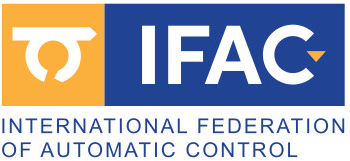Submission
Important Dates:
| Proposals for invited sessions | 01/06/2016 |
| Draft papers submission deadline | 30/06/2016 |
| Notification of acceptance | 15/08/2016 |
| Full paper submission | 15/09/2016 |
Paper submission
Proceedings of IFAC meetings are published online in the IFAC-PapersOnLine series, hosted on the Elsevier ScienceDirect service, which provides open access to the full text of all reviewed papers presented at IFAC events.
Therefore all papers and session proposals should be submitted electronically through Papercept in PDF format. ( https://ifac.papercept.net/conferences/scripts/start.pl ).
The submission site is open from December 1, 2015
All papers must conform to the submission policy requiring that all manuscripts be in 2-column format, following the IFAC conference paper format. Please refer to http://www.ifac-control.org/events/authors-guide for author instructions and and for technical support on creating and uploading PDF files (required LaTeX and Office style files / templates can be downloaded from there).
- Regular papersare invited in the form of regular manuscripts (allotted 6 Proceedings pages). For the purpose of review only, manuscripts may be up to eight (8) pages long. The final manuscripts, however, are limited to six (6) pages.
- Invited papers are allotted 6 Proceedings pages. Each paper in a proposed invited session will be individually reviewed and the proposed invited session itself will also be rated as a whole. Invited sessions
Invited sessions consist of six invited papers presenting a unifying theme from a diversity of viewpoints.
All invited session proposals should be submitted electronically through https://ifac.papercept.net/conferences/scripts/). .
Proposals are sought from those wishing to organise an invited session on a specific topic. The proposal of an invited session must contain a summary statement describing the motivation and relevance of the proposed session as well as a short description of the papers in the session.
The submission procedure for invited sessions is as follows:
- The organiser should submit an invited session proposal including the session title, a brief session description, and the list of papers (title, authors, and affiliation). Submissions have to be made electronically within the Conference Manuscript Management System using the “Invited Session Proposal” submission link.
- Soon after the submission of the proposal, the organiser will receive a Session Code by e-mail. This code is automatically issued by the system. The organiser should then distribute the Session Code to the authors of the invited session papers.
- Individual authors of the invited session papers should submit their papers through the “Invited Session Paper” link at the using the appropriate Session Code they received from the organiser.
Copyright Conditions
“All publication material submitted for presentation at an IFAC-sponsored meeting (Congress, Symposium, Conference, Workshop) must be original and hence cannot be already published, nor can it be under review elsewhere. The authors take responsibility for the material that has been submitted. IFAC-sponsored conferences will abide by the highest standard of ethical behavior in the review process as explained on the Elsevier webpage (http://www.elsevier.com/journal-authors/author-rights-and-responsibilities ), and the authors will abide by the IFAC publication ethics guidelines (http://www.ifac-control.org/events/organizersguide/PublicationEthicsGuidelines.pdf/view ).
Accepted papers that have been presented at an IFAC meeting will be published in the proceedings of the event using the open-access IFAC-PapersOnLine series hosted on ScienceDirect (http://www.sciencedirect.com ). To this end, the author(s) must confer the copyright to IFAC when they submit the final version of the paper through the paper submission process. The author(s) retain the right to use a copy of the paper for personal use, internal institutional use at the author(s)’ institution, or scholarly posting at an open web site operated by the author(s) or their institution, limited to noncommercial use. Any other use of the paper requires approval by IFAC.”




